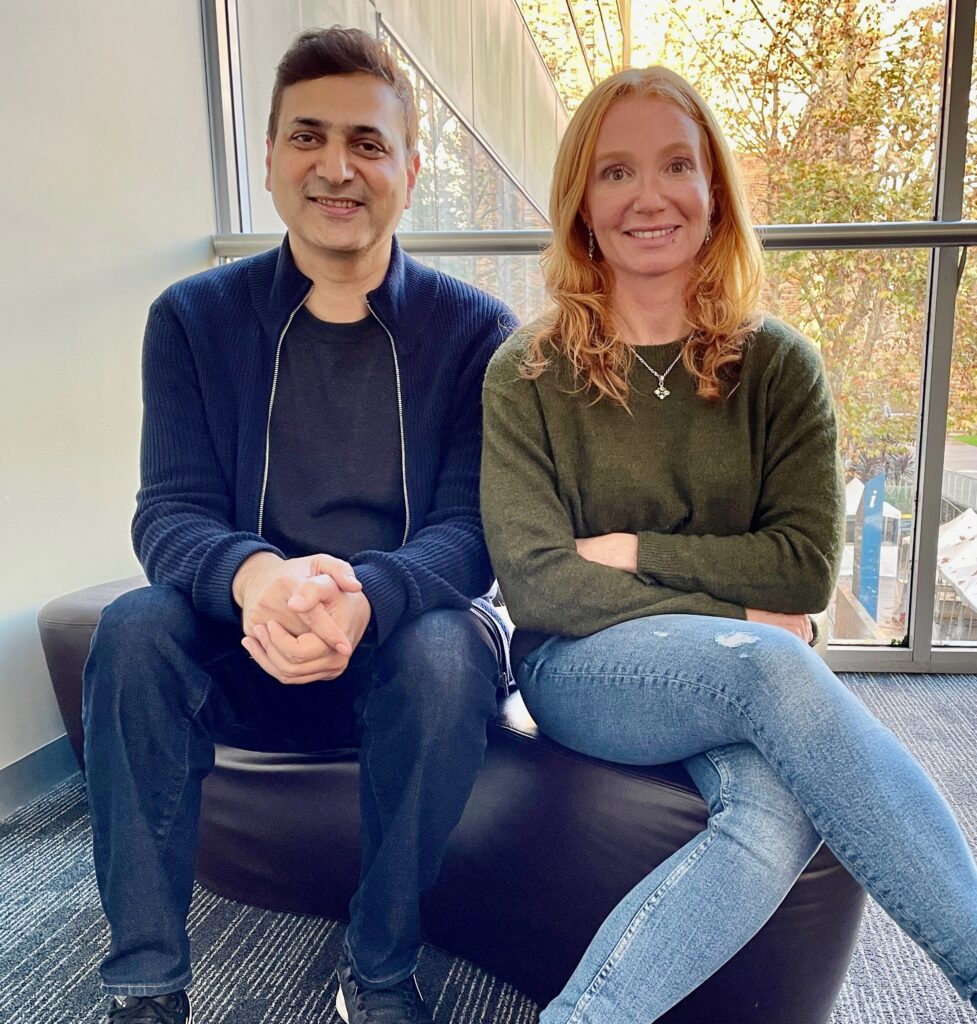What’s your research area?
[BJ] My PhD focuses on the two fields of development communication and public relations to explore how they can be used to refine communication research and practice in development. I aim to offer new methods, approaches, and categories for theorising and conceptualising communication in development.
[VB] I conduct research on the application of Communication for Development in Peacebuilding with a focus on realities affected by violent conflict. I explore and evaluate new communication for development approaches that employ different media and communication channels to contribute to social change and sustainable peace in the aftermath of (or during) violence. My more recent work has begun to explore the use of Communication for Development in the context of displacement and humanitarian interventions, with the aim of developing new frameworks that can inform practice.
How did you come to know each other?
[BJ] After migrating to Australia, I was keen to build on my previous experience in communication in development to have a career in research and teaching. I contacted Valentina at UNSW Sydney because she has done amazing work to further the field of communication for development. Valentina was very forthcoming and responded to my application. Shortly thereafter, I was enrolled in the PhD program. I am very lucky to have her as my supervisor.
[VB] Bhupesh contacted me a few years ago while looking for a supervisor for a potential PhD project. He showed great enthusiasm in having me as a supervisor and was quite familiar with my work. This, to me, was evidence of his commitment both to the field and to his research interest. His project sounded fascinating, so I was very happy to support him throughout his application process to become a PhD candidate at UNSW.
What do you admire about each other’s work?
[BJ] Valentina is very organised—our meetings are well planned, and she is quick to respond to any query on the email. I admire the way Valentina minutely reviews documents and simplifies complex problems into easy steps. Her structured approach to research complements my exploratory style. Besides, she pays attention to my personal concerns as and when they arise, which is very important in a long-term student-supervisor relationship.
[VB] Bhupesh is very determined, motivated and hard-working. I think he could be defined as ‘the dream PhD student’ for any supervisor! He has been very clear about what he wanted from his doctoral experience, and which direction he wished his research would take. And he has been fantastic at keeping up his determination and enthusiasm for his topic throughout his candidature. Bhupesh is now very close to completion, and it is great to see how much he has accomplished over the past few years.
What have you learnt from each other?
[BJ] Valentina has taught me to pay attention to details. She has also helped me to keep my work organised. She has encouraged me to learn new research management skills, participate in forums and lectures, and join associations in development and communication that helped me grow professionally.
[VB] The rich and interesting discussions I have had with Bhupesh over the course of his candidature have really taught me to not step into a student’s work with preconceived ideas or notions that I may have developed through my own work. Everyone’s research journey is different, and Bhupesh is very good at challenging engrained ideas from the field with some pretty solid arguments.
How do you approach the student-supervisor relationship?
[BJ] We value each other’s time a lot. Our discussions are very productive and to the point. I am learning how to accept criticism and work on my weaknesses. Regular meetings and email communication have made the process productive and engaging.
[VB] Our regular (but not obsessively frequent) meetings give me a chance to always be up to speed with Bhupesh’s work, and also to stay on top of my reading and feedback for his work. Our meetings are quite focused on specific action points, which makes them very productive. I also believe we have worked out a way in which he has enough time to himself for considering the ideas discussed, reflecting on the input received, and perhaps re-working whatever content needs to be strengthened. We also have a good email communication, which I think is important.
If you were to supervise, what would you emulate?
[BJ] I would emulate the way Valentina approaches her work overall. Looking at steps and not just plans, discussing bigger ideas and supporting them with simpler tasks, and above all, placing importance on time management and personal space which eventually leads to student well-being and more research output.
If you were to advise a future student, what would you point to about your current student?
[VB] I would remind them of the importance of remaining passionate about their research topic throughout their entire candidature, and to always try and have a direction in mind for where their research is taking them. This may not be crystal clear all the time, but as Bhupesh shows, there is a process of ongoing reflection during a PhD project that should never come to a halt.
What change do you want to see for the future?
[BJ] I think communication practice in development is still at a nascent stage. There is a big gap between scholarship and practice. I would like development practitioners to consider newer communication approaches and methodologies to solve developmental problems. Communication should be seen as integral to development so that more meaningful conversations between development and communication practitioners and scholars can take place.
[VB] I believe Bhupesh’s work has the potential to make a great impact in the field of communication for development, especially at a practical level. His work will encourage development organisations to rethink their approach to the use of communication and to consider a broader range of stakeholders and strategies. This is significant as we strive to progress further in the way we view, and do, development.

Bhupesh Joshi and Valentina Bau
